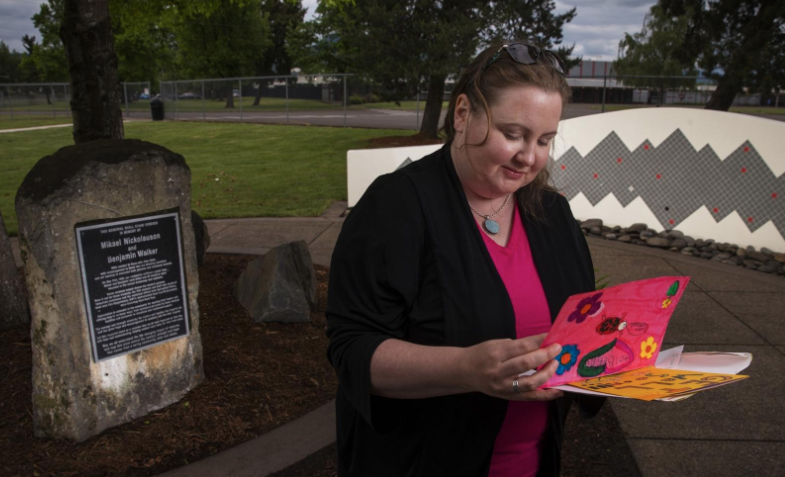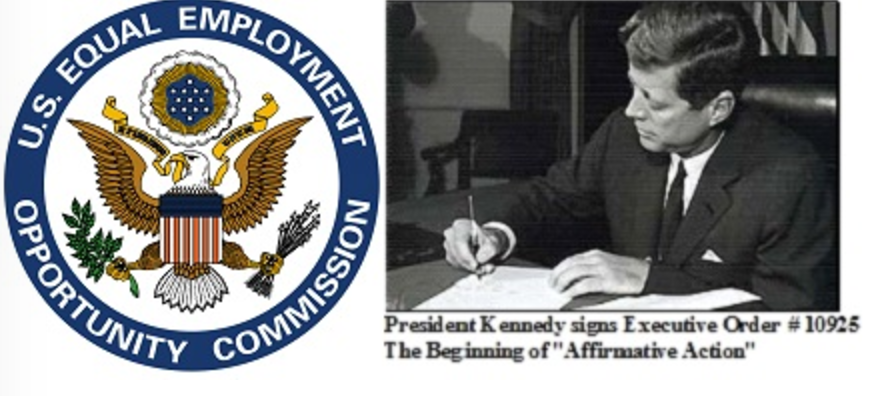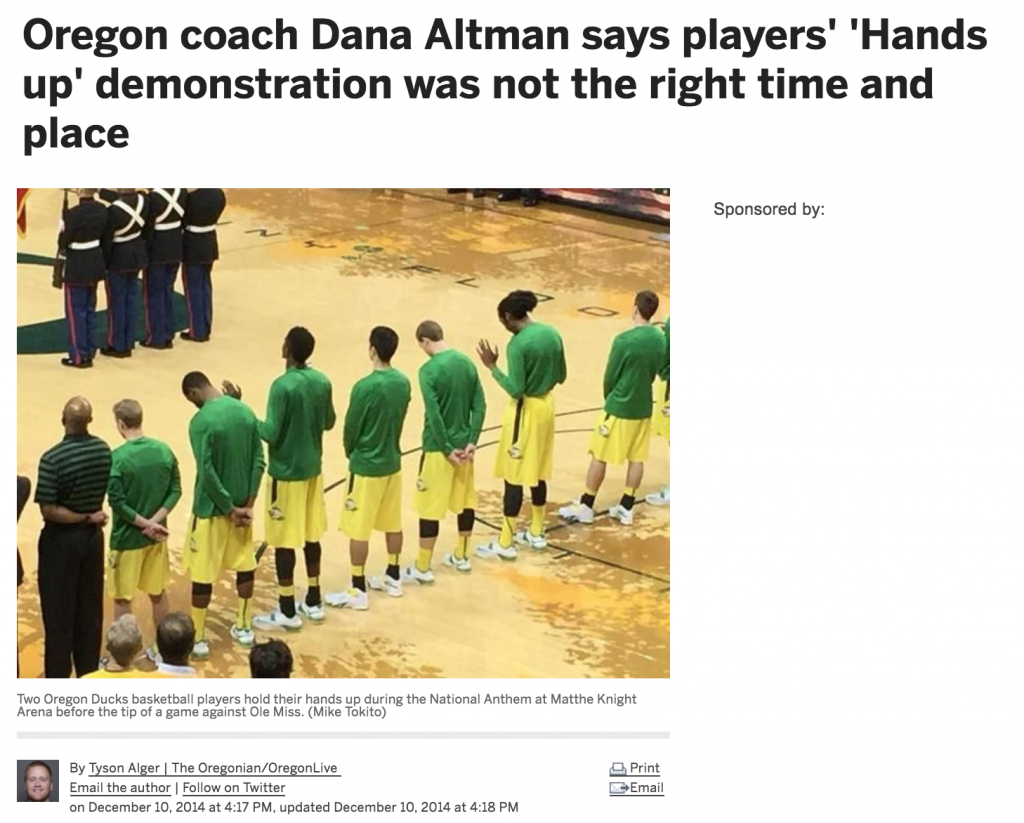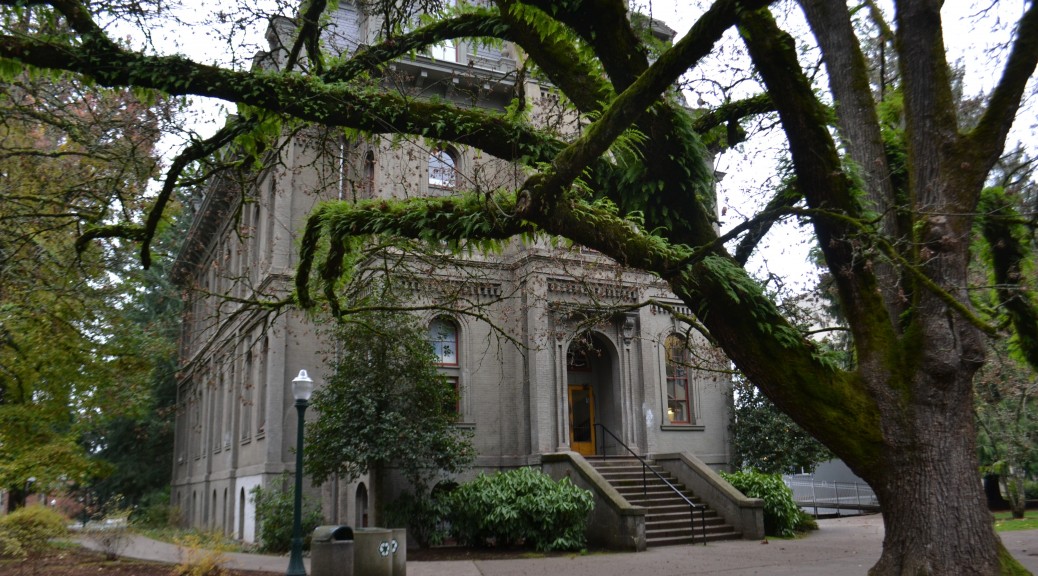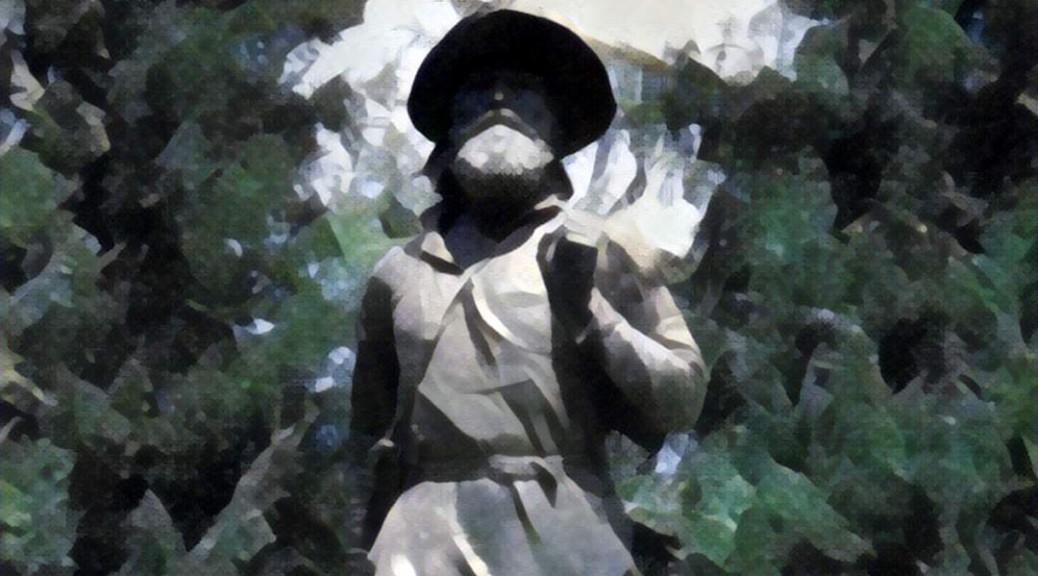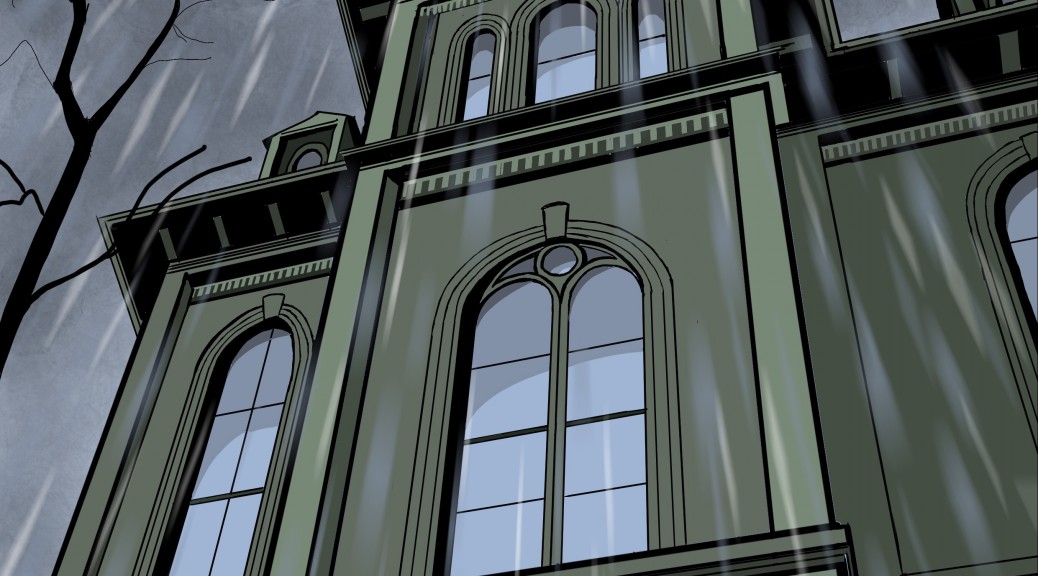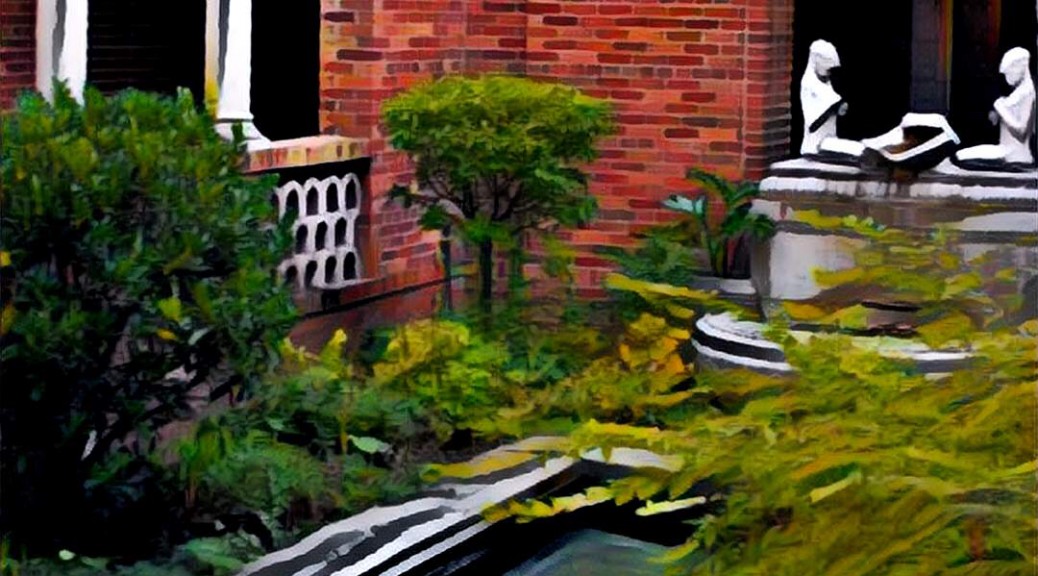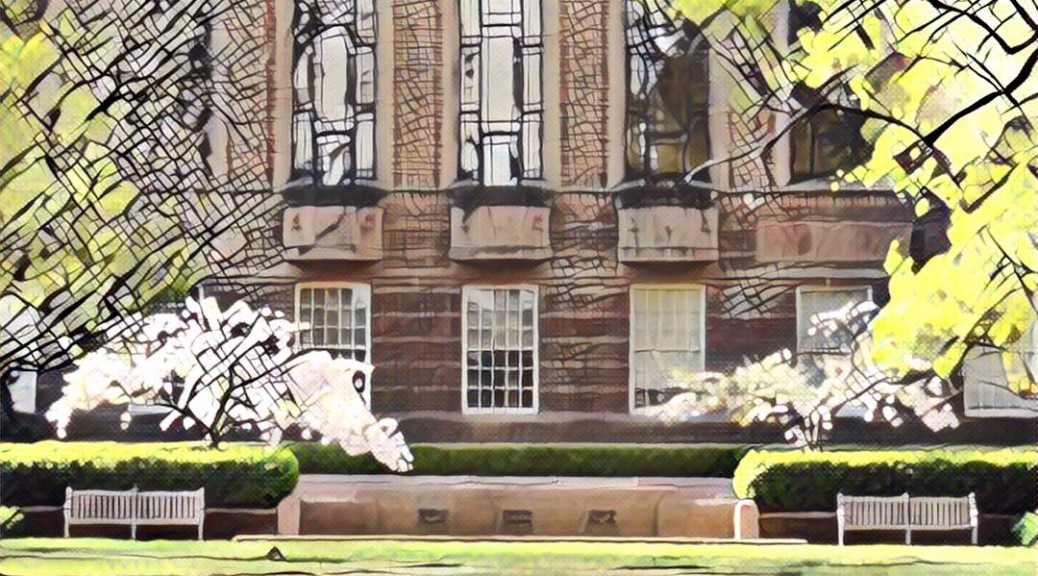[embeddoc url=”https://blogs.uoregon.edu/senate/files/2019/04/Letter-from-GC-Kevin-Reed-on-22Toxic22-Faculty-Club-1m1c18k.pdf” download=”all” viewer=”google” ]
All posts by harbaugh@uoregon.edu
Senate Meeting Agenda – November 28, 2018
DRAFT
Location: EMU 145 & 146 (Crater Lake rooms)
3:00 – 5:00 P.M.
3:00 P.M. Call to order
3:05 PM Introductory Remarks; Senate President Bill Harbaugh
3:20 PM Presentation on Teaching Evaluation reform; Ginger Clark, USC Associate Professor of Clinical Education and former Academic Senate President
3:50 PM Business/ Reports:
- Teaching Evaluation Warning Language; Bill Harbaugh (See below for draft language. Discussion, possible vote)
- Vote: US18/19-02: Approval of Curriculum Report, Fall term 2018; Frances White (Vote)
- Policy for faculty membership on committees, task forces and advisory groups; Bill Harbaugh (Presentation and discussion)
4:20 PM UO’s legislative agenda; Libby Batlan & Hans Bernard, UO State and Community Affairs (Presentation and discussion)
4:40 PM. UO’s new approach to Dual Career Support; Rhonda Smith & Melanie Muenzer, Provost’s Office (Presentation and discussion)
4:56 PM Open Discussion
4:57 PM Reports
4:58 PM Notice(s) of Motion
4:59 PM Other Business
5:00 PM Adjourn
Draft: For discussion for Senate adoption per https://senate.uoregon.edu/entry/?Motions=US17/18-19
Warning: Bias in Student Course Evaluations
Research has shown that student evaluations, particularly numerical ratings, are marred by bias against women, racial and ethnic minorities, and other groups, and are generally unrelated to teaching effectiveness. Despite these problems, numerical ratings using our current instrument may still be collected, and past numerical ratings may still be used in teaching evaluation. The UO Senate, in cooperation with the Office of the Provost, is revising UO’s teaching evaluation instruments and practices in response to this research. During this transition, numerical student evaluations of teaching should not be used as a standalone measure of teaching quality for any university purpose. Instead, teaching should be evaluated primarily using instructor self-reflection, peer reviews, and substantive written student comments, in alignment with the academic unit’s definition of teaching excellence as that is developed.
(Note: See Uttl et al. (2017), Meta-analysis of faculty’s teaching effectiveness: Student evaluation of teaching ratings and student learning are not related, Studies in Education Evaluation, at https://www.sciencedirect.com/science/article/pii/S0191491X16300323)
Senate Exec Coordinator Betina Lynn talks about surviving Thurston school shooting
In the RG here:
… “I would love to move on, not have anxiety, go out to crowded places and be comfortable,” Lynn said. “I’m not hanging onto it. It’s hanging onto me.”
She recalls first trying to “have a life away” from that of a survivor of the Thurston shooting a couple years later, but “crashing hard” when the full impact of the incident hit her.
Lynn later enrolled at Lane Community College in 2003 and graduated from the University of Oregon in 2007 with a bachelor’s degree in ethnic studies with a minor in Spanish. The UO hired her not long after graduation, and she works as the University Senate’s executive coordinator.
She said she had an online exchange earlier this year with a person who said he needed a gun to feel safe in Eugene and that led her to be invited to speak at an anti-gun violence March for Our Lives rally on March 24.
She feels “inspired” by the group of students from Marjorie Stoneman Douglas High School in Parkland, Fla., who have taken a lead role in the national discussion on school shootings and gun violence, and she hopes their efforts may help them deal with the aftereffects of witnessing a mass killing.
“They’re not being silenced, and I think that is going to be helpful to their long-term healing,” Lynn said. …
General Counsel Reed steps down from Transparency Committee, warns Senator Harbaugh that participation in Senate committee work may violate Oregon ethics law
From: Kevin Reed <ksreed@uoregon.edu>
Subject: RE: Potential Fee Appeal by Daily Emerald Public Records Requester
Date: March 16, 2018 at 2:41:57 PM PDT
To: William Harbaugh <harbaugh@uoregon.edu>
Cc: David Cecil <cecil@uauoregon.org>, Chris Sinclair <csinclai@uoregon.edu>
Please review the Oregon Government Ethics Law. Feel free to seek an advisory opinion from the Oregon Government Ethic Commission. As I am sure you are aware, violations of the OGEL can create personal liability to the public official, and thus the risk is really yours, not that of UO.
You have been assessed over $45,000 in fees on your public records requests over the course of the last 5 or so years. You have paid a few hundred dollars for documents, but mostly you have protested the fees and argued for a change in fee policy that would reduce or eliminate fees. A private citizen is, of course, free to engage in such advocacy, but when a public official does so in his official capacity, he does so at his own risk. I have told you this before, and you have ignored my advice thus far. And, as I said the risk is on you, not the university, so I can’t tell you what to do. Continue reading General Counsel Reed steps down from Transparency Committee, warns Senator Harbaugh that participation in Senate committee work may violate Oregon ethics law
UO Foundation Fund Modification Requests
From Senate VP Harbaugh:
In response to the news about the UO Foundation’s efforts to modify the terms of former Professor Marion Dean Ross’s bequest to the Department of Art History, I’ve made a request to the Oregon DOJ for information about other Foundation modification requests. I will add these to this post, along with any additional Ross Fund documents, when I receive them.
Ross Fund documents:
Great moments in UO shared governance
A helpful reader passes on what he swears are actual Faculty Assembly Resolutions from the 82-82 academic year archives:
Resolutions: “The Assembly politely requests the President to convey to Her Majesty Queen Elizabeth the Second their hearty congratulations on the glorious resolution of the Falklands crisis.”
“The Assembly equally condemns the Nicaraguan persecution of the Moskito Indians and the actions of those Americans who support murder and vandalism in Northern Ireland.”
“The Assembly supplicates the President to open meetings with the following prayer: O Almighty Lord God, who for the sin of man didst once drown all the world, except eight persons, and afterward of thy great mercy didst promise never to destroy it so again; we humbly beseech thee, that although we for our iniquities have worthily deserved a plague of rain and waters, yet upon our true repentance thou wilt send us such weather, as that we may receive the fruits of the earth in due season….Amen. (If the weather changes, the prayer for rain may be substituted.)
Meetings will conclude with the singing of the Star Spangled Banner.”
“Be it resolved, that structural incongruity is essential to a liberal university.”
“Though it may not be common knowledge, the Soviet Union, and Tsarist Russia before it, have had a dismal record of unprovoked attacks on weaker nations. (Insert here a history of Russia from any standard encyclopedia.) Accordingly, the Assembly earnestly exhorts the President of the United States to use the greatest circumspection in arms negotiations with the Soviet Union. (To be moved as a substitute for Professor Straton’s motion)””
“In view of the alarming incidence of Herpes, the Assembly strongly recommends to members of the University community who do not have the gift of continence that they confine their sexual activities to monogamous relationships, preferably within the bonds of holy matrimony. Furthermore, pitying the plight of university graduates who cannot get teaching jobs because of the decline in the school population, the Assembly recommends that, where qualifications are equal, preference in new appointments shall be given to candidates who give promise of raising large families; and to reconcile this principle with affirmative action, the Assembly urges free child care facilities for married faculty. (To be moved as a substitute for Professor Ryan’s motion.)”
Motion: “Be it moved, that one can of worms is equal to any other can of worms.”
Voting closes at 5PM Today for Senate & Committees
Please login to your Duckweb account to access the ballot.
You will see candidate options based on your rank/classification, i.e. tenure-track teaching faculty in College of Arts & Sciences-Natural Sciences, Officer of Administration, Classified Staff and so on.
Please contact senatecoordinator@uoregon.edu if you have questions or problems accessing the ballot.
The election closes Friday, May 19, 2017 at 5 P.M.
Candidate Bio Information can be found below:
CAS Dean’s Advisory Committee
Natural Sciences – 1 opening
- Hans Dreyer, Human Physiology
- N. Chris Phillips, Math – Statement
Faculty Advisory Council
CAS-Tenure-Track Faculty-Humanities – 1 opening
- David Wacks, Romance Languages – Statement
- Gina Herrman, Romance Languages
CAS Tenure-Track Faculty – Natural Sciences- 1 opening
CAS Tenure-Track Faculty- Social Sciences – 1 opening
Libraries – 1 opening
- Annie Zeidman-Karpinski – Statement
- Katy Lenn
Professional Schools – 3 openings
- Ihab Elzeyadi, AAA – Statement/Profile
- Merle Weiner, Law – Statement
- Marilyn Nippold, Education
- Charles Martinez, Education – Statement
- Rich Margerum, AAA – Statement
- Alexandre Dossin, Music – Statement
- Deanna Linville-Knebelspiesse, Education – Statement
- Laura Leete, PPM – Statement
- Sharon Paul, Music – Statement
Officers of Administration
- Patrick Fletchall, Oregon MBA- Statement
- Jill Elizabeth, Law School- Statement
- Miriam Bolton, CAS Dean’s Office – Statement
- Lara Nesselroad, UO Libraries – Statement
- Stacy Williams-Wright, Research & Innovation- Statement
Faculty Grievance Appeals Committee
- John Bellamy Foster, Sociology – Statement
- Kevin Nute, AAA – Statement
- Peter Gilkey, Math – Statement
- Virginia Cartwright, AAA – Statement
- McKay Sohlberg, Education – Statement
- Cynthia Vakareliyska, Linguistics – Statement
- Stephen Frost, Anthropology
- Gina Herrman, Romance Languages
Faculty Personnel Committee
Business – 1 opening
- Jiao Zhang
CAS – 2 openings
- Marcin Bownik, Math
- David Wacks, Romance Languages – Statement
- Gina Herrmann, Romance Languages
- Sean McClelland, AEI – Statement
- Steven van Enk, Physics
- Dejing Dou, Computer and Information Science
Education – 1 opening
- Kent McIntosh, Special Ed – Statement
- Marilyn Nippold, Communication Disorders
Graduate Council
Education – 1 opening
SOJC – 1 opening
- Seth Lewis – Statement
Intercollegiate Athletics Advisory Committee – 2 openings
- Mike Price, Math – Statement
- Susan Sokolowski, AAA – Statement
- Jenefer Husman, Education – Statement
- Joshua Gordon, Business
- N. Chris Phillips, Math – Statement
- Dave Fowler, Libraries – Statement
- Katy Lenn, Libraries
- Charlie Butler, SOJC – Statement
- Madonna Moss, Anthropology – Statement
- Anita Weiss, International Studies – Statement
- Laura Leete, PPPM – Statement
- Charles Dold, AEI
Officers of Administration Council – 4 openings
- Janelle McCoy, Oregon Bach Festival – Statement
- Patrick Fletchall, Business – Statement
- Jill Elizabeth, Law School – Statement
- Stephanie McGee, Internal Audit – Statement
- Emily Farrell, Law School – Statement
- Katie Bumgardner, Internal Audit – Statement
- David Bartlett, Information Services – Statement
- Dietrich Moore, Services for Student Athletes – Statement
- Emily Williams, AAA – Statement
Promotion-Tenure-Retention-Appeal Committee – 2 openings
- Cynthia Vakareliyska, Linguistics – Statement
- David Jacobs, Music & Dance – Statement
- Dejing Dou, Computer and Information Science
- Gina Herrmann, Romance Languages
University Senate
AAA – 2 openings
CAS Humanities – 3 openings
- Alejandro Vallega, Philosophy – Statement
- Colin Koopman, Philosophy – Statement
- David Wacks, Romance Languages – Statement
- Ben Saunders, English – Statement
CAS Natural Sciences – 4 openings
- N. Chris Phillips, Math – Statement
- Hans Dreyer, Human Physiology
- Margaret Sereno, Psychology – Statement
- Anthony Hornof, Computer and Information Science
- Adrienne Huxtable, Human Physiology
- Tom Greenbowe, Chemistry – Statement
- Carrie McCurdy, Human Physiology
- Mike Hahn, Human Physiology
CAS Social Sciences – 3 openings
- William Harbaugh, Economics – Statement
- Katie Meehan, Geography
- Nelson Ting, Anthropology
- John Bellamy Foster, Sociology – Statement
- Madonna Moss, Anthropology – Statement
- Daniel Buck, Geography
- Jane Cramer, Political Science
Education – 2 openings
- Marilyn Nippold, Communication Disorders
- Sylvia Thompson, Special Ed
- John Seeley, Special Ed
Law – 1 opening
Library- 1 opening
Music and Dance
- Toby Koenigsberg
- Jack Boss – Statement
Non-Tenure-Track Research Faculty – 1 opening
Classified Staff
- Paula Seeger, UO Libraries – Statement
- Marie Swarringim, Campus Planning, Design & Construction – Statement
- Zach Benedict, AEI – Statement
- Terry McQuilkin, UO Libraries – Statement
- Jay Butler, Business Affairs Office – Statement
Officers of Administration – 2 openings
US16/17-28: Create a Teaching Evaluation Task Force
Date of Notice: May 17, 2017
Current Status: Approved May 24, 2017
Motion Type: Legislation
Sponsor: Sierra Dawson (Human Physiology) and Bill Harbaugh (Senate & Economics)
Section I
Whereas: While student evaluations of teaching can be an important tool for evaluating and improving teaching and learning, there is substantial peer-reviewed evidence from other colleges and universities that student course evaluations of the sort used at UO are biased with respect to gender and race and that the numerical scores are poorly correlated with teaching effectiveness and learning outcomes.
There is also scholarly evidence that peer (faculty) reviews of teaching may be ineffective at evaluating teaching effectiveness and giving useful feedback for improvement.
The Senate seeks to increase the validity and effectiveness of both student course evaluations and peer reviews, for the purposes of evaluation and improvement of UO’s teaching.
Section II
Therefore: The UO Senate seeks to improve UO’s methods of course evaluation and teaching reviews by moving that:
-
The Senate creates a Teaching Evaluation Task Force, with membership and duration to be determined by the Committee on Committees, to include stakeholders from the faculty and administration, with the charge of evaluating and improving course evaluations and peer (faculty) reviews with respect to reducing biases and improving validity, with the goal of improving teaching, learning, and equity.
-
The Senate authorizes the Teaching Evaluation Task Force to work with the Teaching Engagement Program to exempt a limited number of courses per quarter from the regular student course evaluation process for faculty participating in their programs, so long as reasonable alternative procedures for student input are in place and the results are communicated to the Task Force.
-
The Teaching Evaluation Task Force is authorized to conduct temporary experiments with student course evaluations and peer reviews to begin as soon as Summer 2017. These experiments may include changes in the questions, format, timing, software, and incentives for participation of students. The Task Force will aim to report to the Senate on possible improvements to student course evaluations and peer evaluations by Fall 2018. The report will include analysis of gender and race bias in the traditional and experimental evaluations. All courses in these experiments will return to the current default course evaluation process by Fall 2018, unless the Senate acts otherwise to change that process. Stakeholders will be consulted before any experiments and before the Task Force’s report.
-
The Teaching Evaluation Task Force will address the issues of academic misconduct and student evaluations raised by motion https://senate.uoregon.edu/2017/02/15/us1617-15-student-misconduct-and-teaching-evaluations-policy-propos in its reports and proposals to the Senate.
UO policy changes open for comment
More on this soon, this is a placeholder.
Search committee for new AAEO Director announced
UPDATE: May 1, 2017
—–Original Message—–
From: Bill Brady
Sent: Monday, May 01, 2017 8:33 AM
To: Senate President <senatepres@uoregon.edu>
Cc: Senate Vice President <senatevp@uoregon.edu>; Senate Executive Coordinator <senatecoordinator@uoregon.edu>
Subject: RE: AAEO Director search
Bill-
The committee is finalizing its lists of candidates it would like to invite to campus. We expect to bring three qualified candidates to campus in mid to late May. Each candidate will give a public presentation that will be open to the campus community. We are creating a page which will be hosted on the HR website that will include background information on the position, the candidates’ on-campus schedules, their CVs, and a survey where community members may provide feedback.
Hope this information is helpful.
Warm Regards,
Bill
Bill Brady
Assistant Vice President, Employee and Labor Relations
541-346-2305
Office of Human Resources
677 East 12th Avenue, Suite 400
5210 University of Oregon
Eugene, OR 97403-5210
On Sunday Apr 30, 2017, at 9:34 PM, UO Senate President <senatepres@uoregon.edu> wrote:
To: Bill Brady <wbrady@uoregon.edu>
Hi Bill –
I’m writing as Senate President, to ask for an update on the search for a new AAEO director, particularly posting of finalists info, and opportunities for Senate constituents to meet the finalists.
Thanks,
Bill Harbaugh
Senate President
Economics Professor
University of Oregon
AAEO Director search committee:
- Chair: Bill Brady, Assistant VP Employee & Labor Relations
- Nicole Commissiong, Assist Dean of Student Affairs, Law School
- Gordon Hall, Professor, Psychology Department
- Darci Heroy, Associate Vice President and Title IX coordinator
- Emily Huang, Student, ASUO
- Mariann Hyland, Assistant Vice Provost, Academic Affairs
- Theodora Ko Thompson, Admissions Evaluator; SEIU
- Brian McWhorter, Associate Professor, Music
- Genevieve Perdue, Graduate Student, GTFF
- Heather Quarles, Senior Instructor, Romance Languages; UA
- Leslie Wolgamott, Director, Financial Services, University Advancement; OA Council
Here is a link to the posting for the position: http://careers.uoregon.edu/cw/en-us/job/519619/director-office-of-affirmative-action-and-equal-opportunity-aaeo
Free Speech for student-athletes and the student press
3/19/2017 update with link to General Counsel’s report:
I’m still waiting for the administration to provide the Senate with a copy, but I got this version from a Emerald student journalist and it looks legit: [embeddoc url=”https://blogs.uoregon.edu/senate/files/2017/01/Media-Access-to-Athletes-and-Free-speech-Final-For-Distribution-rev-3-17-27jyxlo.pdf” download=”all” viewer=”google”]
Comments on the report and suggestions for next steps for the Senate to take are welcome. In the past I would have send this to the IAC, but given the new IAAC’s restricted charge I’m considering setting up a Task Force on Free Speech to deal with it.
Bill Harbaugh
1/23/2017 followup:
Dear GC Reed –
I’m writing as Senate President, to ask you for an update on your investigation of the Duck AD for potential violations of UO’s free speech and academic freedom policies.
Thanks,
Bill Harbaugh Senate President, Economics Professor, University of Oregon
On MondayJan 23, 2017, at 8:30 PM, Kevin S Reed <ksreed@uoregon.edu> wrote:
I’m in deep interview mode. Coming along swimmingly.
Kevin S. Reed | Vice President and General Counsel
Office of the General Counsel
219 Johnson Hall | Eugene, OR 97403-1226
(541) 346-3082 | ksreed@uoregon.edu
1/12/2017 update:
Register Guard reporter Austin Meek has a report on General Counsel Kevin Reed’s investigation of the Athletic Department here: http://registerguard.com/rg/sports/football/35172801-69/oregon-general-counsel-opens-review-into-athletic-department-media-policies.html.csp
12/1/2016 update:
Yesterday I received an email from President Schill saying that he would instruct GC Reed to investigate these athletic department free-speech issues, and report to him. I assume that the Senate will also be given this report.
I’ve already talked with several current and former Duck sports reporters, who told me about many other potential similar violations of UO free speech policies by the Athletic Department in recent years, with respect to both student-athletes and student and professional reporters.
One noted the #blacklivesmatter protest by Dana Altman’s student-athletes during the National Anthem, reported by Tyson Alger in the Oregonian here: http://www.oregonlive.com/ducks/index.ssf/2014/12/oregon_coach_dana_altman_says.html
Altman chewed out his players and wouldn’t let them talk to the press afterwards.
The Senate will continue to look into these free speech issues.
From: UO Senate President <senatepres@uoregon.edu>
Subject: Free Speech for students and the student press
Date: November 27, 2016 at 10:13:14 PM PST
To: Kevin Reed <ksreed@uoregon.edu>
Dear General Counsel Kevin Reed:
We are writing you as President and Vice President of the Senate, regarding media reports that UO Athletic Department AAD Dave Williford told Oregon Daily Emerald sports editor Kenny Jacoby and other UO student-journalists that he would take away their Athletic Department issued press credentials, if the Emerald went ahead with their story on alleged assaults by UO football players. The news reports also say that the UO Athletic Department has a policy requiring that student-athletes not talk to the press without the Athletic Department’s permission.
The story is published here, https://www.dailyemerald.com/2016/11/17/oregon-tight-end-pharaoh-brown-accused-three-acts-violence-since-october-2014/ and the interview in which Mr. Jacoby explains the threat to take away his and other UO student reporters’s press credentials is here: http://www.oregonlive.com/sports/oregonian/john_canzano/index.ssf/2016/11/oregon_daily_emerald_story_dem.html.
This apparent threat from Mr. Williford, and these Athletic Department policies, procedures, or practices preventing UO students from talking to reporters may be in violation of the UO policies on Freedom and Speech and Inquiry, and on Academic Freedom. The former policy states:
The University of Oregon values and supports free and open inquiry. The commitment to free speech and freedom of inquiry described in this policy extends to all members of the UO community: Faculty, staff, and students. It also extends to all others who visit or participate in activities held on the UO campus.
Free speech is central to the academic mission and is the central tenet of a free and democratic society. The University encourages and supports open, vigorous, and challenging debate across the full spectrum of human issues as they present themselves to this community. Further, as a public institution, the University will sustain a higher and more open standard for freedom of inquiry and free speech than may be expected or preferred in private settings.
Free inquiry and free speech are the cornerstones of an academic institution committed to the creation and transfer of knowledge.
The latter policy states:
The University’s responsibility to help students to think critically and independently requires that members of the university community have the right to investigate and discuss matters, including those that are controversial, inside and outside of class, without fear of institutional restraint.
(at https://policies.uoregon.edu/content/academic-freedom-0)
We are asking that you investigate this incident, and the relevant UO Athletic Department policies, practices, and procedures, and give a report to the Senate giving your interpretation of whether or not the UO policy on Free Speech and Inquiry and the policy on Academic Freedom, or relevant State or Federal laws, have been violated.
In particular, We ask you to address the following questions:
1) Is requiring student-athletes not to speak to the press without Athletic Department approval in conflict with UO free speech policies and law?
2) Is taking, or threatening to take, the press credentials of UO student journalists if they publish a story in conflict with UO free speech policies and law?
3) Were Mr. Williford’s actions – i.e. apparently attempting to discourage student-athletes from talking to the press, and threatening to take away the press credentials of these reporters, consistent with current UO policy?
We would appreciate it if you would send this report to the Senate by January 10, 2017. Please let us know if you have any questions.
Bill Harbaugh, Economics Prof., Senate Pres
Chris Sinclair, Assoc. Prof. Math, Senate VP
President Schill emails UO in support of transgender students
Dear members of the University of Oregon community,
The University of Oregon is proud to be a welcoming and inclusive campus that supports the rights of every member of our community, including people of all genders and gender identities.
Recently, there have been events that have left many transgender students and members of the faculty and staff within our community feeling concerned and vulnerable. This is not acceptable, and I want everyone to know that the UO will continue to be a place where anyone can live and study in safety, with dignity, with authenticity, and in an environment that is free from discrimination. We remain committed to providing safe and equitable access to all of our programs, activities, and facilities regardless of gender identity or expression.
The UO respects everyone’s right to self-determination and to live as their true selves, and in support of that commitment our institution continues to offer gender-neutral housing and bathroom options, gender-neutral support and education services, and programs that honor people’s pronoun and name preferences. As our Title IX coordinator recently stated in this message, our commitment to the fundamental protections of Title IX remain unwavering. I hope that those who need support will take advantage of the wealth of resources that are provided at the UO.
I want to reassure all of our students, the faculty and staff, and visitors to our campus that you are, and remain, welcome here at the University of Oregon and an important part of our community.
Best regards,
Michael H. Schill
President and Professor of Law
President Schill appoints Andy Karduna (Human Phys) to chair new IAAC
Hi Andy,
I’m as surprised as you are to see you appointed IAAC Chair. Congrats.
As Senate President, I’d suggest that a good first step for the IAAC would be to restart the investigation of the allegations about the advising services provided by SSA that came up while Rob Illig was IAC Chair.
Bill Harbaugh, Senate President, Economics Professor, University of Oregon
On ThursdayFeb 16, 2017, at 4:36 PM, Andrew Karduna <karduna@uoregon.edu> wrote:
This was not on my radar, but at the request of President Schill, I agreed to take on this position. He can be very persuasive.
I am hopeful that we will be able to meet once this quarter and two or three times in the spring.
I would greatly appreciate it if you could email me with possible agenda items – what do you want to discuss with respect to the academic performance and welfare of student-athletes?
I look forward to working with all of you.
– Andy
—
Andrew Karduna, Ph.D., Professor and Director of Graduate Studies
Department of Human Physiology, University of Oregon
On 2/16/2017 3:38 PM, President Michael Schill wrote:
Dear IAAC members,
Thank you for your willingness to serve on the inaugural Intercollegiate Athletics Advisory Committee (IAAC). I am pleased to announce that Andy Karduna has agreed to serve as the inaugural chairperson for this committee and I want to thank him in advance for his leadership.
The University Senate approved the following committee charge on November 30, 2016:
The Committee is charged with advising the President on all policies and practices related to the academic performance and welfare of student-athletes. The Committee may at the President’s direction, engage broader issues regarding the relation of the athletics program to the overall mission of the university and NCAA or PAC12 policies. Additionally, the IAAC is charged with bringing issues related to the academics of student-athletes to the Senate with recommendation for action as needed.
The committee membership is made up of faculty, staff, students, and relevant administrators, which I list below as a way of initial introductions. I look forward to meeting you all at our first meeting and to working together in the future. My office will be in touch to schedule our first meeting during Winter Quarter.
Sincerely, Michael H. Schill President and Professor of Law
IAAC Membership
Faculty
· Pedro Garcia-Caro, Romance Languages
· Tim Gleason (Faculty Athletic Representative), Journalism and Communication
· Andy Karduna (Chair), Human Physiology
· Laura Leete, Planning, Public Policy and Management
· Kelli Matthews, Journalism and Communication
· Elizabeth Skowron, Counseling Psychology
· Glen Waddell, Economics
Classified Staff
· Johnny Earl, Campus Operations
Students
· Jeff Lockie, graduate student and Presidential appointment
· Morgan Krakow, Undergraduate and ASUO appointment
· Juwaan Williams, Undergraduate and Student Athletic Advisory Committee appointment
Ex Officio
· Lisa Freinkel, Vice Provost and Dean for Undergraduate Studies
· Rob Mullens, Intercollegiate Athletic Director
· Lisa Peterson, Deputy Athletic Director / Senior Women’s Administrator
· Steve Stolp, Executive Director of Services for Student Athletes
· Roger Thompson, Vice President for Student Services and Enrollment Management
Submit your name for UO Board Faculty Trustee by Feb 28
From: UO Senate President <senatepres@uoregon.edu>
Subject: DEADLINE Feb 28: Nomination and review process for the new faculty member of the UO Board of Trustees
Date: February 13, 2017 at 2:24:35 PM PST
Dear UO Statutory Faculty Members –
The current Faculty Trustee on the UO Board of Trustees – Susan Gary (Law) – will be completing her term of office on June 30. Sometime between now and then Governor Kate Brown will appoint another member of the statutory faculty to take her place. The Oregon Senate then confirms (almost always) the appointment. The Faculty Trustee is a voting member of the UO Board, by the Governor’s decision, and we expect that to continue given the Governor’s support for shared governance.
The Faculty Trustee is not appointed to promote the faculty’s interests, rather they share the fiduciary responsibility to act in the broad best interests of the University that all our Trustees have. We believe that this requires that the faculty trustee be well informed about the university at large and the opinions of the faculty on important matters that come before the board, be able to effectively inform the rest of the board about those opinions, be able and willing to keep the faculty informed about the thinking and plans of the Board, and be selected with input and buy-in from the faculty – something that has not been done in the past.
So we’re writing to all UO Statutory Faculty to suggest that you learn more about the Board and consider submitting an application to the governor’s office and encourage colleagues who you think would do a good job for UO to also apply. The deadline to apply to the Governor’s office is Feb 28th, and as explained below the Board would prefer that the Faculty Trustee be from CAS, since the last one was from a professional school.
The rest of this email gives some info about university boards and the UO Board, explains how faculty can self-nominate for the Faculty Trustee position, and explains how the Senate will review nominations and make a recommendation to the Governor’s office.
Information on the Board:
The party line on the UO Board can be found at their website here http://trustees.uoregon.edu/ along with contact information. The Association of Governing Boards has a lot of information at https://www.agb.org/reports/topic/faculty-and-shared-governance. One recent AGB report, for example, is “Shared Governance: Is OK good enough?” at http://agb.org/sites/default/files/survey_2016_shared_governance.pdf You might also want to contact Susan Gary sgary@uoregon.edu or Board Secretary Angela Wilhelms at wilhelms@uoregon.edu.
Information on how to apply to the Governor’s Office:
As the Governor’s website says, “Applying for a Board is Easy!” Unfortunately their website is a bit slow: http://www.oregon.gov/gov/admin/Pages/How_To_Apply.aspx.
You will need to complete this form: http://www.oregon.gov/gov/admin/Documents/Interest%20Form%20.pdf and include a c.v., bio, and statement of interest. The application form is here: http://www.oregon.gov/gov/admin/Documents/Interest%20Form.pdf
The Board has posted this statement on the process: https://trustees.uoregon.edu/sites/trustees2.uoregon.edu/files/board_membership_considerations.pdf. It clarifies that the Board will not prohibit the Senate or other organizations from recommending candidates – which we appreciate – and will not make its own recommendation or allow individual trustees to advocate for or against prospective candidates. However they do reserve the right to:
“Provide information to the Governor’s executive appointments office about what demographics, skills and experiences will help maintain a well-rounded board in whole • Advocate for alternation between constituency types (e.g. classified/OA; professional school/CAS)”
Which we take to mean they would prefer this new trustee be from CAS, since Prof. Gary is from Law.
Information on how the Senate will provide input to the Governor:
We have contacted the governor’s office and they want input from the University Senate and the faculty about who would be a good Faculty Trustee.
After the deadline for applications closes on February 28th, they will send us a list of all applicants and their application materials. We will post these on the Senate website, and ask the nominees if they would like to provide any additional information, or answer emailed questions from faculty. We will then ask the statutory faculty members of the Senate to rank the nominees (with a Qualtrics poll) and we will provide the aggregate rankings to the Governor’s office. The Senate President and Vice President will consult with the Senate Executive Committee and provide the Governor’s office with our evaluation of the nominees – just as any other citizen may do.
Thanks very much for your assistance in helping ensure that we have a strong set of faculty applicants for the governor to consider when she fills the upcoming vacancy on our UO Board of Trustees!
Bill Harbaugh, Senate President & Professor of Economics
Chris Sinclair, Senate President Elect and Associate Professor of Mathematics
University of Oregon
UO postpones plan to impose unacceptable Acceptable Use Policy
Dear Senators –
At last week’s meeting I discussed the problems with the computing resources “Acceptable Use Policy” that the administration was proposing to implement. This policy governs everything we do when we use a UO computer, a computer bought with grant money, or when we connect our own computer or phone to the UO network. It applies to students, faculty, librarians, staff, and OA’s.
Greg Bryant, John Bonine, and Colin Koopman – a.k.a. the Senate’s Info Tech Task Force – had identified a host of problems with this policy. The administration addressed some issues, but would not respond to simple questions about other problems. On Wednesday, after I brought up this issue in the Senate, the Board of Trustees Secretary emailed me to propose a meeting between a few UO faculty and the relevant Assistant General Counsel. I responded by asking for a meeting with the Senate Executive Committee, because of the importance of this policy. The BOT Secretary did not respond to that request.
Today I met with the Provost’s Chief of Staff. She told me that she would yank the AUP proposal from the policy process, agreeing that the policy as put forward needed some work that would best be done when we have a new CIO, and she thanked the ITTF for their edits and comments, without of course committing to accept them.
Meanwhile the current AUP remains in effect. It is at https://it.uoregon.edu/sites/default/files/UO_Acceptable_Use_of_Computing_Resources_Policy_13Nov2015.pdf It is a bit dated, but seems far preferable in terms of its protections. For example, here is the Prohibited Conduct section:
Current language: “The University Conduct Code, OAR 571-21-030, also applies to electronic forums. The code prohibits, among other things, lewd or indecent conduct, threat of imminent physical harm, sexual or other harassment, stalking, forgery, intentional disruption of university services, and damaging or destroying university property. Similarly, the code’s prohibitions against illegal discrimination, including discriminatory harassment and sexual harassment, also apply to electronic forums.”
The University Conduct Code is actually the Student Conduct Code, at https://policies.uoregon.edu/vol-3-administration-student-affairs/ch-1-conduct/student-conduct-code. It only applies to students. It is also very specific:
16. “Harassment” means:
a. Intentionally subjecting a person to offensive physical contact;
b. Unreasonable insults, gestures, or abusive words, in the immediate presence, and directed to, another person that may reasonably cause emotional distress or provoke a violent response (including but not limited to electronic mail, conventional mail, social media and telephone) except to the extent such insults, gestures or abusive words are protected expression; or
c. Other types of prohibited discrimination, discriminatory harassment, and sexual harassment as defined by law.
In contrast, the administration’s proposed new policy language was vague and expansive and included no language about protected expression:
“6.6 Shall not use UO IT resources to transmit any communications that reasonably could be considered obscene, harassing, threatening or discriminatory by the recipient or another viewer. For more information on UO policies in this area, see the Office of Affirmative Action & Equal Opportunity web site.”
While the old policy prohibited physical threats with the specific language from free-speech case law,
“threat of imminent physical harm”,
the proposed new policy would apply threats of any kind, apparently including the familiar “If you miss one more class I will lower your grade” email threat. And they wanted to apply this broad policy language to all users, not just students. How would our General Counsel’s office find the time to deal with all these prohibited emails? Why would they want to try?
This new policy will come back to the Senate for approval someday. My explanation above covers just one of the many problems with it. Read more in the pdf below from the ITTF, which will continue to monitor the situation.
Thanks,
Bill Harbaugh, Senate Pres, Econ Prof
Draft UO Acceptable Use Policy – with Senate Task Force changes, Feb 1-1yoj5hr
[embeddoc url=”https://blogs.uoregon.edu/senate/files/2017/02/Draft-UO-Acceptable-Use-Policy-with-Senate-Task-Force-changes-Feb-1-1yoj5hr.pdf” download=”all” viewer=”google”]
Update: US16/17-09: Declaring UO a Sanctuary Campus
1/30/2017: The administration will host a town hall Monday at 6PM, EMU Ballroom, on the Trump Travel Ban and the Sanctuary resolution implementation. http://around.uoregon.edu/content/campus-town-hall-address-questions-immigration
1/28/2017: I’ve asked President Schill and VP Alex-Assensoh for an update on the administration’s implementation of the recommendations in this resolution and how President Trump’s “extreme vetting” order will affect UO. We expect to have more information this week and a full report by the end of the quarter.
Passed 11/16/2017: Senate Resolution: “University of Oregon as Sanctuary Campus”
Continue reading Update: US16/17-09: Declaring UO a Sanctuary Campus
President Schill: Keep Deady name, add Black Cultural Center
|
Reset the Code
A message from Professor of Advertising Deb Morrison:
Greetings during Week 2 and all it brings!
I wanted to share with some leaders of our campus the work being done by our student agency, Allen Hall Advertising.
Their initiative to bring civility to discussions, social media, conversations during tumultuous times is bringing visibility to our SOJC program as well as the University. The project is described here http://resetthecode.uoregon.edu/ and in installations at the EMU. Our students have worked tirelessly to make this happen, working last term and over break.
Our mission: we want discussion and disagreement to happen without name-calling or derision but based on facts and mutual respect. Real conversation. Let’s leave the toxicity and “comments section” approach of most social forums behind. We need your help to ensure civility and to model this approach.
We’ve had over 10,000 hits on the site from 25+ countries. I’ve just received two requests from other universities for use of the initiative and conceptual thinking. We’ll be sharing that material with Boston University and others soon.
Tom McDonnell, UO manager of creative services and the advisor for the agency, has arranged for our student leadership to present to OSU later in the term. He has done a tremendous job in mentoring these students.
Local news stations have covered it and we’re talking with Communication Arts, Adweek who will then help spread the word to large outlets like The New York Times and Washington Post. We’ll be working with our alum who work in those media organizations to get coverage.
Here’s the request: in our interviews with media, I’d like to be able to state that our administration and campus leaders actively support the project and concept. This can be done through social media or in statements and conversations. Support from Johnson Hall administration and University Senate leaders would be appreciated and make a statement. Thanks to you who have already done so.
Thanks for listening.
By the way, we are exceptionally proud of our advertising students. This is what they will continue to bring to the world as they enter the profession.
deb
Deborah Morrison PhD
Carolyn Chambers Distinguished Professor of Advertising
Director of Advertising
University of Oregon | School of Journalism and Communication
Advertising + Brand Development
331 Allen Hall Eugene, Or 97403
541.954.4872
@debkmorrison
|
|
|||
Senate Pres asks “Faculty” Athletics Representative for hospital report
Dear Professor Gleason –
I’m writing as UO Senate President, to you in your capacity as “Faculty Athletics Representative”.
As noted in your appointment notice from Mike Gottfredson at “https://president.uoregon.edu/content/tim-gleason-appointed-faculty-athletic-representative,
“The FAR is responsible for ensuring the academic integrity of the intercollegiate athletic program, promoting the well-being of student athletes, and supporting institutional oversight of athletics compliance and student eligibility.
I’m sure you’ve read the stories in the Oregonian and the Washington Post regarding the hospitalization of at least 3 UO students after football workouts.
I am asking you to investigate this situation, provide a preliminary written report to the Senate Executive Committee by Jan 24th, and appear at the Feb 1 Senate meeting to answer questions.
Thanks,
Bill Harbaugh
Senate President, Economics Professor, University of Oregon
Your chance to talk to UO Trustees
Dear Colleague,
I’m writing to you as the faculty member on the UO Board of Trustees. At previous board meetings, the trustees have met in small groups with faculty to talk about opportunities and challenges the university faces and ways the faculty can be involved in improving and strengthening the university (and, of course, ways the faculty already works to strengthen the university). The trustees have been enthusiastic about these discussions, and we are planning another one for the March board meeting – and you’re invited.
Each meeting will include 2-3 trustees and 8-12 faculty members depending on how many people sign up. These discussion sessions are planned for 12:00 – 1:00 pm on Thursday, March 2. Lunch will be provided. If you cannot attend this time, there will be future opportunities.
These will not be public meetings (there will not be a quorum present), so faculty members and trustees should feel able to share their thoughts and concerns about the university more directly.
If you are interested in participating in the March 2 discussions, email Amanda Hatch in the board’s office (ahatch@uoregon.edu) no later than February 17. Please include your name, phone number, department or program, and years of service. My goal is to create groups representing a wide array of experience and fields of study, and consisting of faculty who have perhaps not yet been exposed to the board. Amanda will compile RSVPs for me, and we will follow up directly with individuals about participation and logistics. If we get more than we can accommodate this time, we’ll keep all names for future opportunities.
Thanks so much. I have been impressed with the enthusiasm of all of the trustees and their desire to help strengthen the university. I think these discussions will continue to be a great way for the trustees and faculty members to learn more about each other and share ideas about the university.
Sincerely,
Susan Gary
Trustee
Closed search for new provost
Dear members of the University of Oregon community,
As many of you may know, the Provost Search Committee has been hard at work for the past five months. The 17-member committee, which includes representatives from virtually all of the UO’s constituencies, has created a position description, built a pool of candidates, and conducted interviews with a wide variety of potential candidates. We are now at the stage of the process where we plan to bring some of them back to Eugene for more intensive interviews and recruitment.
The Provost Search Committee, in conversation with members of the search firm Russell Reynolds Associates and some of our candidates, has concluded that the successful completion of the search requires that we follow what is increasingly becoming the national practice: avoiding the sort of open search that we have previously employed for decanal candidates. If we were to follow past practice, a number of candidates would drop out of the process rather than compromise their leadership positions at their current universities.
We have consulted with University Senate leadership and the Faculty Advisory Council on how to move forward with the next step in the process in a way that carefully balances our need to conduct a competitive search with our desire to receive input from appropriate campus stakeholders. We have agreed that over the next few months, finalists will come to Eugene to be interviewed again by the search committee and by deans, vice presidents, the provost and his chief of staff, the senate president, and the president of United Academics. Following this process, the search committee will present their final recommendations to the president, who will ultimately make the hiring decision.
We are excited by the pool of candidates; they are an accomplished set of academic leaders capable of leading our university. We are also very grateful for the generous amount of work and dedication of members of the Provost Search Committee who are committed to finding our university the best person to be our next provost. While our process for selecting the next provost will be different than it has been in the past, in light of the inclusive nature of our search committee and our desire to hire the very best provost we can, we are comfortable with the process set forth above.
We look forward to providing you with more information in late February or early March.
Sincerely,
Michael H. Schill
President and Professor of Law
Geraldine Richmond, Provost Search Committee Chair
Presidential Chair and Professor of Chemistry
President Schill to work with Senate Budget Committee on new budget
This announcement was sent out 12/6/2016. The administration’s unelected Budget Advisory Group will not meet this year, and the administration will form a joint Budget Advisory Task Force with the Senate Budget Committee. The BATF will start meeting in January.
More information on how the Governor’s budget proposal will affect higher education is available on OSU’s excellent government affairs blog. UO’s website is here.
Dear University of Oregon community,
Last Thursday, Oregon Governor Kate Brown released her budget for the FY 2017–19 biennium and proposed flat funding for all seven public universities. This is good news only in the sense that it could have been a lot worse due to the state’s estimated $1.7 billion budget deficit for the next biennium. The bad news is that flat funding from the state creates significant financial challenges for the UO.
You may recall that the UO joined with all of the other Oregon public universities in signing a letter this fall stating that we needed a combined $100 million in additional state funding to keep next year’s tuition increase below 5 percent. This proposed budget obviously falls well short of that goal. Oregon has still not returned to the levels of state support delivered to the UO before the economic downturn—about $80 million in 2008. The UO currently receives about $66 million in state operating support. Also bear in mind that over the last 20 years, both in Oregon and nationally, cuts to public support for higher education have shifted the burden of paying for a college degree to students and families. We will work tirelessly to seek additional funding from the state—and we call on students, faculty, staff, and other stakeholders to join with us in this effort.
We project that the UO’s educational and general operating expenses will increase approximately $25 million next year largely due to salary increases contained in our faculty and staff labor contracts, rising health-care costs, and the extraordinary increase in our required contribution to the state’s unfunded pension (PERS) liability. The way the state distributes funds over the two years will result in another $2.5 million reduction. When you add everything up, it means next year, if our funding from the state remains constant as proposed, the UO will face at least a $27.5 million shortfall. We must find, in some combination, additional revenues (e.g., tuition and fees) or expense reductions as a result.
Furthermore, it is important to recognize that the current governor’s budget proposal of “constant funding” is premised on the assumption that the state will generate nearly $900 million in new revenue from a variety of sources. If lawmakers are not able to agree on a revenue plan, the overall state budget will need to be cut further to bring it into balance.
Also, the university’s revenue shortfall for next year should not be confused with efforts by several of our schools and colleges to bring their budget into balance. This work is ongoing and will proceed along a parallel track.
As we plan for these uncertainties, our top priority is to protect our access and academic programs. Indeed, with the incredible opportunities presented by the gift of Phil and Penny Knight, our initiative to increase the number of tenure-related faculty by 80 to 100 members over five years, investments in student success, and planned initiatives around diversity and inclusion, the school is poised to make historic strides in building the sort of academic excellence that only a few years ago seemed out of our reach. Despite the very real financial challenges we may face, we will protect these efforts and keep our march toward excellence on track.
While we will not know the final state budget for many months, perhaps as late as July, we need to move ahead now in our planning. The Tuition and Fees Advisory Board began meeting last month to consider the budget situation and potential tuition and fee increases. The current budget realities mean it will be nearly impossible to keep the tuition increase below 5 percent, and in fact the percentage could rise much higher. We will join with our students in helping state lawmakers understand how this proposed budget affects higher-education affordability at the UO and across the state of Oregon.
In addition, we will need to look creatively at other options. Within the next few weeks, the president will appoint an ad hoc budget advisory task force to provide advice and ideas for raising additional revenues and reducing expenses. The task force will include members of the Senate Budget Committee as well as administrators, faculty and staff members, and students. It will begin meeting in early January. The traditional Budget Advisory Group, which works to make recommendations on strategic investments, will not be convened this year.
We also ask that all departments proceed carefully with any new hiring of administrative staff and non-tenure-track faculty over the remainder of this fiscal year. Existing searches and requests for hiring approval should be reevaluated with an eye toward whether the personnel are absolutely essential and whether the hiring could be delayed until July 2017, when we will have a better understanding of the overall budget. Ultimately, it is very likely that many of our units will see reductions to their budgets next year. In many instances, it will be better to handle these expense reductions through attrition rather than through layoffs or contract nonrenewals.
The governor’s budget is a starting place and nothing is set in stone. Over the next several months, we will work with counterparts at the other state universities to make the case to increase state funds for higher education. We invite all members of our community, including our alumni, the ASUO, and labor unions, to join us in this effort.
Sincerely,
Michael H. Schill
President and Professor of Law
Scott Coltrane
Provost and Senior Vice President
Adminstration’s investigation of the halloween party Black doctor incident
(Updated)
Dear Colleagues –
On Monday I sent UO General Counsel Kevin Reed this request:
11/13/16, 3:18 AM, “UO Senate President” <senatepres@uoregon.edu> wrote:
Dear GC Reed –
I’m writing as UO Senate President, to request that you provide the Senate with the details of the charge you’ve given the AAEO office and/or outside counsel to investigate the Halloween blackface incident. The Senate and its Executive Committee is particularly interested in knowing what laws, regulations, or UO policies the investigation may involve.
We would like to have the information before the Senate meeting this Wednesday.
Continue reading Adminstration’s investigation of the halloween party Black doctor incident
Chief Carmichael reports on UOPD implicit bias and racial/gender/LBGTQA sensitivity training
Received this afternoon, following a request on Saturday:
Senate President Harbaugh,
Thank you for your specific request for information about police training related to “implicit bias and racial/gender/LBGTQA issues, and any plans for additional training.” Per your request please find my response below. I focused the response on what we are doing currently and what we plan to do in the future understanding that our future plans are still in the development phase. It goes without saying we are currently not doing enough training in this area but we are planning to change that here at UOPD.
Current Training and Initiatives at the University of Oregon Police Department specifically related to racial/gender/LBGTQA issues
- All officers attend the police academy and receive training in the referenced areas
- 10 hours of cultural awareness training focusing on communication skills
- 1.5 hours of training on community policing and problem solving orientated policing
- Internal University of Oregon Police Department Training
- Field Training Program currently provided by the Eugene Police Department for all new officers which includes a general focus on community orientated policing
- After completion of this training new officers receive training here at UO focusing on meeting the needs of our community (general community orientated policing training)
- 7 hour training that focusses on Perspectives on Police Profiling/Tactical Ethics. (provided 2 years ago)
- Implicit Bias training for command staff
- Staff reviewed the Department of Justice video on “Law Enforcement and the Transgender Community”
- Field Training Program currently provided by the Eugene Police Department for all new officers which includes a general focus on community orientated policing
Moving forward our future strategies focus on a training plan that is consistent with serving the needs of all UO community members. I have learned through experience that training in the areas of community policing cannot be a onetime deal and must include a focused and sustained approach. My hope is to seek input and support from various partners such as faculty, staff and students. We will be reaching out to all of our campus partners for their support, expertise and collaboration in developing a community approach to the training of our police department.
I do plan to implement an internal field training program for all new officers instead of having them trained at the Eugene Police Department. The training model we will use is called the Reno Police Department Adult Learning Model.
“The Reno Police Training Officer (PTO) model is based on the teaching principles of Problem-Based Learning (PBL) and emphasizes the need for the PTO to function primarily as a trainer rather than as an evaluator. PBL is firmly established in the fields of medicine and education, where it is used to facilitate the transfer of knowledge. Similarly, in policing, recruits need to learn much more than just laws and police procedures. They must also understand how to transfer their academy knowledge effectively when dealing with individuals and issues within a community. As demands on police continue to increase, agencies must provide officers with the resources and the training necessary to fulfill their expanded role. This approach will help police recruits think about their roles and responsibilities as they approach specific problems in their daily work. Problem solving is an integral part of police work and requires a creative and flexible method of thinking”[1]. (Sorry for the cut and paste but this is one of the best descriptions I have found on the program, I am hoping for faculty support on this project)
There must be a place for our community to play a role in this area of our new training program if we are to be successful. There are specific training opportunities that we plan to move forward on now which include but are not limited to:
- Online technology and programs such as, “Project Implicit” thoughtfully delivered and utilized by all members of the department
- Seattle Police Department video training on Transgender community education
- Review Seattle Police Department policy for implementation here
- Partner with the Dean of Students areas for Diversity and Community as a resource to better understand and serve our student community
- Partner with other UO organizations, students, faculty and staff on similar topics
- Review of best practices to include a legislative review
We will continue to work with the State of Oregon Department of Public Safety Standards and Training which is home to the State’s police academy and responsible for our certification. This just a snapshot of what is in the works for our training plan. While we continue to train, our timeline is to go live with our plan sometime in the end of January. I am excited about developing out the section of our training plan related to community policing that not only fits UO but acts as a model for others to follow.
I hope I provided you enough detail about our plans moving forward. If you would like further information about other areas of training not covered in this email please let me know.
Sincerely, Matt
Matthew E. Carmichael, Chief of Police
University of Oregon Police Department
Matt.Carmichael@uopd.org
US16/17-08: Proposed Senate Resolution: “Reaffirming our Shared Values of Respect for Diversity, Equity, and Inclusion.”
Volokh comments on TPM free speech constraints proposal
Below is an exchange between UO GC Kevin Reed and UCLA Law Professor Eugene Volokh, a well known free-speech advocate and blogger, regarding Reed’s proposed policy regarding restrictions on the time, place and manner of campus free-speech.
From: Kevin Reed [mailto:ksreed@uoregon.edu]
Sent: Friday, October 21, 2016 10:58 AM
To: Volokh, Eugene <VOLOKH@law.ucla.edu>
Subject: Any chance you’d be willing to comment on these?
Continue reading Volokh comments on TPM free speech constraints proposal
Preliminary schedule for Tuition and Fee Advisory Board
2017 Faculty Research Award applications due Nov. 28
Sent on behalf of Lynn Stearney, Director, Research Development Services, Office of the Vice President for Research & Innovation
Please distribute this announcement to your faculty.
The Vice President for Research & Innovation invites faculty from all academic disciplines to apply for 2017 Faculty Research Awards.
The purpose of the Faculty Research Awards program is to stimulate research by providing faculty with support for research expenses including travel, summer stipend, equipment, supplies, contractual services, shared facility use, and graduate or undergraduate student research assistance.
Faculty Research Awards are eligible for funding up to $5,500.
The deadline for receipt of 2017 Faculty Research Award proposals is 5:00 PM, November 28, 2016.
Awardees will be notified in late February or early March, 2017. Projects should begin by July 1, 2017, and be completed by June 30, 2018. Final reports are due by July 31, 2018.
Guidelines and the application form are available online on the Research Development Services website.
The Faculty Research Awards Committee, composed of faculty designated by the University Senate, will evaluate proposals on the basis of their intellectual or artistic merit and make recommendations to the Vice President for Research & Innovation.
An information session on the Faculty Research Awards will be held on Monday, October 31 2016, from 12:00 – 1:00 in the Mt. Hood Room of Peace Health North, 677 East 12th Avenue. This session will provide an opportunity for prospective applicants to ask questions about eligibility, proposal requirements, award conditions or any other aspects of the Faculty Research Award program.
Questions should be directed to Research Development Services, rds@uoregon.edu.
UO reaccreditation process begins
UO’s federal accreditation comes from the Northwest Commission on Colleges and Universities – website here.
UO’s website on the process is here: http://accreditation.uoregon.edu/
Want to comment on the new CAS blog?
Too bad, they don’t allow comments – just “a suggestion box” which only the admins can see. How 1950’s.
So I’m posting this, as a place for the UO community to comment on CAS matters. Here’s the “Thinking about CAS” blog.
President Schill appoints Angela Wilhelms as Executive Coordinator of Statutory Faculty
Administration writes a “Statement of Principle Regarding Academic Policies”
Under the 2011 UO Constitution, the faculty has authority over “all academic matters as commonly understood in higher education”:
1.2 The University of Oregon is governed by the President and the Professors in accordance with the 1876 University of Oregon Charter. ORS 352.010. 1.3 Sole faculty governance authority at the University of Oregon resides in the Statutory Faculty. This authority extends to all academic matters as commonly understood in higher education. The Statutory Faculty may delegate its authority but must retain oversight responsibility.
This summer President Schill and Provost Coltrane made an attempt to be more specific:
From: Scott Coltrane
Sent: Sunday, October 2, 2016 9:48 PM
To: harbaugh@uorego.edu; Chris Sinclair
Cc: Mike Schill
Subject: Fw: Academic principles
Bill and Chris,
I wanted to share with you the attached Statement of Principle Regarding Academic Policies that Mike and I have approved to help us determine if a policy is academic or not. The Policy on Policies uses language from the Constitution (see citations on the attachment), but there is still the question of what “commonly understood” means. Based on research from AAU peers, AAUP, etc., this seemed like an appropriate baseline. We do feel it is important to have an articulated standard to help guide us through the policies process. We look forward to hearing your thoughts.
SCOTT COLTRANE | Provost and Senior Vice President
provost@uoregon.edu | 541-346-3186
202 Johnson Hall
1258 University of Oregon | Eugene, OR 97403
Statement of Principle Regarding Academic Policies
Primarily, we see academic policies as those addressing curriculum, academic standards, academic standards of admission, academic freedom, tenure and promotion, major changes to academic programs, grading standards, and student life as it relates to the educational process. Additionally, academic policies are more likely than not going to include policies relating to faculty status; this area includes appointments, reappointments, decision not to reappoint, promotions, the granting of tenure and denial. See AAUP’s Statement on Government of Colleges and Universities Section 5.[1]
Policies which have broad applicability to university employees but do not differentially treat faculty are not considered academic. For example, key control to buildings, parking, purchasing regulations, or information technology matters relevant to all users, such as training, security and email use.
Regardless of whether a policy or proposal is deemed “academic” and thus proceeds through the academic policy process, the input of the senate or individual faculty members is always welcome through the public comment process for interested stakeholders.
Approved by President Michael Schill and Provost Scott Coltrane
August 2016
Miscellaneous Policy References and Citations
A “University Policy” (Policy) is a policy that
- Has broad application or impact throughout the University community
- Must be implemented to ensure compliance with state or federal law
- Is necessary to enhance the University’s mission, to ensure institutional consistency and operational efficiency, or to mitigate institutional risks
- Is otherwise designated by the Board or the [University] President as a University Policy.
Excluded from the definition of a University Policy are things such as, but not limited to, implementation guides, operating guidelines, internal procedures, and similar management controls and tools.[2]
An academic policy is one that addresses curriculum, academic standards, academic standards of admission, academic freedom, tenure and promotion, major changes to academic programs, grading standards, student life that relates to the educational process, or other matters of an academic nature as commonly understood in higher education.[3]
Proposals regarding majors, programs, minors, certificates, courses, and degree requirements are not considered policies for process purposes.[4]
[1] https://www.aaup.org/report/statement-government-colleges-and-universities
[2] University of Oregon Policy I.03.01, Section 3.1
[3] University of Oregon Policy I.03.01, Section 3.2; University of Oregon Constitution, Section 1.3 (emphasis added)
[4] University of Oregon Policy I.03.01, Section 5.3
Changes proposed for college teaching release policies
CAS and, I believe the other colleges are currently revising their teaching release policies. I’ve asked the deans for the current drafts, and will add them below as I receive them.
Info request:
From: UO Senate President <senatepres@uoregon.edu>
Subject: course release policy
Date: October 1, 2016 at 2:31:09 AM PDT
To: Andrew Marcus <marcus@uoregon.edu>, Bruce Blonigen <bruceb@uoregon.edu>, bfoley@uoregon.edu, Terry Hunt <tlhunt@uoregon.edu>, randyk@uoregon.edu, Adriene Lim <alim@uoregon.edu>, cpl@uoregon.edu, lawdean@uoregon.edu, jmolleda@uoregon.edu
Cc: Chris Sinclair <csinclai@uoregon.edu>, Senate Executive Coordinator <senatecoordinator@uoregon.edu>, Office of the Provost <provost@uoregon.edu>, Mariann Hyland <hylandm@uoregon.edu>
Dear Deans –
I’m writing as Senate Pres, to ask that you provide the Senate with a copy of the current draft of your college’s course release policy, so that I can distribute it to the Senate before our October 5 meeting.
Thanks,
Bill Harbaugh
Senate President
Economics Professor
University of Oregon
CAS response:
From: Karen Ford <fordk@uoregon.edu>
Subject: Fwd: course release policy
Date: October 1, 2016 at 3:57:50 PM PDT
To: William Harbaugh <harbaugh@uoregon.edu>
Dear Bill,
I’m responding to your request below for college course release policies. Attached are our proposed methodology and metrics in CAS, which we’ve drafted after discussions among the CAS deans and with the Wise Heads. We will be discussing the proposal with Academic Affairs and United Academics before it’s final.
All the best,
Karen
[embeddoc url=”https://blogs.uoregon.edu/senate/files/2016/10/CAS-Proposed-course-release-methodology-2.7-26ncqed.pdf” download=”all” viewer=”google”]
[embeddoc url=”https://blogs.uoregon.edu/senate/files/2016/10/Course-release-metrics-5.1-21i3bps.pdf” download=”all” viewer=”google”]
AAA response:
From: Christoph Lindner <cpl@uoregon.edu>
Subject: Re: course release policy
Date: October 1, 2016 at 11:48:25 AM PDT
To: Senate President <senatepres@uoregon.edu>
Cc: Senate Executive Coordinator <senatecoordinator@uoregon.edu>
Dear Bill,
I’m sorry to say that A&AA does not currently have a draft school policy on course releases. We are currently working on developing/drafting such a policy, which will be available to share and circulate in due course.
best wishes,
Christoph
Christoph Lindner
Dean and Professor
School of Architecture and Allied Arts
University of Oregon
cpl@uoregon.edu
aaa.uoregon.edu
Senate secures compensation for FPC members
From: Office of the Provost <provost@uoregon.edu>
Subject: FPC Support
Date: October 3, 2016 at 8:58:54 AM PDT
To: “dcrumb@uoregon.edu” <dcrumb@uoregon.edu>, David Frank <dfrank@uoregon.edu>, Esther Hagenlocher <ehg@uoregon.edu>, Steven Morozumi <stevenm@uoregon.edu>, Laura Lee McIntyre <llmcinty@uoregon.edu>, Doris Payne <dlpayne@uoregon.edu>, Boris Botvinnik <botvinn@uoregon.edu>, “Scott Fitzpatrick” <smfitzpa@uoregon.edu>, John Foster <jfoster@uoregon.edu>, Margaret Paris <mparis@uoregon.edu>, Eric Torrence <torrence@uoregon.edu>
Cc: William Harbaugh <harbaugh@uoregon.edu>, Chris Sinclair <csinclai@uoregon.edu>, Chuck Triplett <clt@uoregon.edu>
Dear FPC Members,
In recognition of the significant time commitment made by members of the UO Faculty Personnel Committee, and acknowledging input from past committee members and chairs, I will be providing supplements to FPC members’ Academic Support Accounts. Following each year of service, the Chair will receive $3,000, the Chair-elect $2,000, and each other member a $1,000 supplement to their ASA accounts.
With appreciation for all you do for our university,
Scott
SCOTT COLTRANE | Provost and Senior Vice President
provost@uoregon.edu | 541-346-3186
202 Johnson Hall
1258 University of Oregon | Eugene, OR 97403
SCOTT COLTRANE | Provost and Senior Vice President
provost@uoregon.edu | 541-346-3186
202 Johnson Hall
1258 University of Oregon | Eugene, OR 97403
Current FPC:
Deady and Dunn Hall denaming and renaming?
President Schill’s decision to dename Dunn Hall has been confirmed by the UO Board, as has his decision to delay a decision on Deady until the students are back on campus and can participate.
President Schill’s message to the University community on this subject is here: http://president.uoregon.edu/content/deady-and-dunn-halls-next-steps
We are opening this part of the Senate blog as a place for discussion on the potential denaming and renaming, so please add your comments.
Board of Trustees to meet Sept 8,9 in Ford Alumni Center
The BOT website is here.
We’ve posted a more convenient version of their agenda below, and have opened up the comments for those with a UO email address.
Academic and Student Affairs Committee —8:30 am – September 8, 2016, Ford Alumni Center, Giustina Ballroom [Materials]
Convene – Call to order, roll call – Introductory comments and agenda review – Approval of June 2016 ASAC minutes (Action) – Public comment
1. Academic Program Review: Scott Coltrane, Senior Vice President and Provost; Susan Anderson, Senior Vice Provost
2. Student Success Initiatives: Scott Coltrane, Senior Vice President and Provost; Lisa Freinkel, Dean of Undergraduate Studies; Ron Bramhall, Assistant Vice Provost for Academic Affairs; Doneka Scott, Associate Vice Provost for Student Success
Finance and Facilities Committee — September 8, 2016 [Materials] 10:00 am – September 8, 2016
Convene – Call to order and roll call – Approval of June 2016 FFC minutes (Action) – Public comment
1. Quarterly and Year‐End Finance Report: Jamie Moffitt, Vice President for Finance and
Administration/CFO
2. Auxiliary Budget Review: Athletics: Rob Mullens, Director of Intercollegiate Athletics; Eric Roedl, Deputy Athletic Director
3. Capital Construction & Planning
‐‐Oregon Hall Renovation (Action): Jamie Moffitt, Vice President for Finance and Administration/CFO
‐‐Pacific Hall Renovation (Action): David Conover, Vice President for Research and Innovation; Bill Cresko, Professor and Associate Vice President for Research
4. UO Buildings – Energy Policies and Programs: Michael Harwood, Associate VP for Campus Planning and Facilities Management
Executive and Audit Committee —1:15 pm – September 8, 2016 Ford Alumni Center, Giustina Ballroom [Materials]
Convene – Call to order, roll call – Approval of June 2016 EAC minutes (Action)
1. Quarterly Audit Report and Amendment to Internal Audit Charter (Action): Trisha Burnett, Chief Auditor
2. University IT and Computing Priorities Update: Scott Coltrane, Senior Vice President and Provost; Chris Krabiel, Interim CIO; Adriene Lim, Dean of Libraries
Meeting Adjourns
Meeting of the Board — September 8-9, 2016 [Materials]
THURSDAY, SEPTEMBER 8 – 2:00 pm – Convene Public Meeting
– Call to order, roll call, verification of quorum – Approval of June 2016 minutes (Action) – Public comment
Those wishing to provide comment must sign up advance and review the public comment guidelines either online (http://trustees.uoregon.edu/meetings) or at the check-in table at the meeting.
1. Recommendation re Dunn Hall (Action): Michael Schill, President
2. Seconded Motions and Resolutions (Actions)
–Seconded Motion from FFC: Pacific Hall Renovation (pending September 8 committee action)
–Seconded Motion from FFC: Oregon Hall Renovation (pending September 8 committee action)
3. New Administrator Introductions: Scott Coltrane, Senior Vice President and Provost
4. President’s Report: Michael Schill, President
Meeting Recessed
FRIDAY, SEPTEMBER 9 – 9:30 am – Reconvene Public Meeting
5. Presidential Assessment Report: Chuck Lillis, Chair; Ginevra Ralph, Vice Chair
6. AY16-17 Tuition and Fee Setting-Process: Scott Coltrane, Senior Vice President and Provost
7. Clusters in Focus
–Center for Genome Function: Eric Selker, Professor of Biology and Member of the Institute for Molecular Biology; Diana Libuda, Assistant Professor of Biology; Jeffrey McKnight, Assistant Professor of Biology
–Health Promotion, Obesity Prevention & Human Development: Beth Stormshak, Professor of Counseling Psychology and Human Services and Director of the Prevention Science Institute
8. Federal Funding at the UO: David Conover, Vice President for Research and Innovation; Jim
Brooks, Assistant Vice President for Enrollment Management and Director of Financial Aid and Scholarships
9. UO Portland – Update: Jane Gordon, Vice Provost for UO Portland
Meeting Adjourned
Board agrees to give 5 minutes to ASUO and UO Senate Presidents
10/6/2016:
From: Angela Wilhelms <wilhelms@uoregon.edu>
Subject: Standing Meeting Reports
Date: October 6, 2016 at 2:08:43 PM PDT
To: Senate President <senatepres@uoregon.edu>, Quinn Haaga <qhaaga@uoregon.edu>
Cc: Amanda Hatch <ahatch@uoregon.edu>, Jennifer LaBelle <jlabelle@uoregon.edu>
Bill and Quinn,
I hope this email finds you both well and enjoying the start of another busy academic year!
Chair Lillis asked me to extend an invitation to both of you to present a standing report at the Board of Trustees meetings, beginning with the next meeting in December.
ASUO and University Senate standing reports were a part of board meetings during the first several meetings. However, they were removed from the agenda in favor of written reports when some presenters used the time to speak to the audience and rally crowds, rather than update the board on the progress and goings-on within the respective organization.
The Chair believes that we are past some of those practices, and he trusts that trustees can resume receiving updates from you (or your designees if you cannot attend) that are informative and insightful.
We ask that you still provide a written version of your report so that trustees can read it in advance and come prepared with any questions. The oral reports are scheduled for 5 minutes each, so you could easily include more detailed information in the written material. These are not intended to be two different reports.
Amanda will be in touch prior to each meeting with the time, and she’ll be your point of contact on logistics and details. Barring some reason to adjust the schedule, these will almost always take place near the very beginning of the meeting after public comment.
Let me know if you have any question!
Angela
P.S. Since the December meeting is in Portland, we will have a live teleconference feed to a room on campus so that the two of you, as well as people interested in making public comment, don’t have to travel to Portland. Amanda will have those details closer to time as well so that you can share it with your respective groups.
Angela Wilhelms
University Secretary
University of Oregon
O: 541.346.5561 | C: 503.931.5426
9/6/2016: Senate Pres Harbaugh letter to Board Chair Lillis
Dear UO Board Chair Lillis, and UO Trustees:
I am writing to you as UO Senate President. Last week the Board Secretary asked me to submit written comments to you for this week’s meeting, and then to answer questions at some point during the time you have set aside on your next agenda “for public comments”.
I refused, because I believe, as have all previous UO Senate presidents since UO independence, that our Board of Trustees should be willing to give the Senate some specific time on their agenda for discussing academic matters with them. I see that the UO student leadership also does not appear on your agenda. Apparently they have also been put in the public comment period.
This is not normal. The boards of governors of other AAU universities regularly set aside scheduled time on their agendas for the representatives of the faculty and the students – and what else is a university about? – to speak, ask questions of the board, and answer the board’s questions. (Besides, the comments from the public are often among the more interesting parts of the board meetings, and I hate the idea that the Senate’s time will take away from the public’s.)
The UO Senate has in past years scheduled time for both Chair Lillis and Trustee Ballmer to speak to us. The Senate made sure these presentations were well promoted, and that everyone understood their importance. Turnout was large and these interactions helped the faculty and the university understand the board, and built some trust in it. As Senate President I welcome requests from any trustee to speak, and I will treat them with the same respect that the Senate has done in the past.
In that spirit, I hope that your next agenda will explicitly schedule time for the Senate leadership to address the board and to ask and answer questions about academic matters. I promise to bring plenty to the table.
Yours,
Bill Harbaugh
Economics Professor & Senate President
University of Oregon
A note from Senate President Harbaugh
Welcome to the new academic year and the Senate’s new website.
The Senate’s first meeting will be 3-5PM Wednesday October 5th, and we will meet every two weeks for fall quarter. Our normal meeting place will be in the EMU’s new Crater Lake Room, though the place for our first meeting is TBA.
The website is the work of Senate VP Chris Sinclair, Senate Executive Coordinator Betina Lynn, and Senate Program Assistant Kurt Wilcox. Past websites are archived here. We have designed the new website to increase transparency by making it easier to see what the Senate and our committees are doing, and to increase communication by adding blog comments that will allow for input and discussion by faculty, staff, OA’s, and students. It’s a work in progress and we welcome input – please try adding your suggestions about the website here.
The UO Senate has constitutional responsibility for academic matters, which derives from the Oregon legislation that chartered the University in 1853, as reaffirmed by President Lariviere in UO’s 2011 constitution, and more recently by President Schill. As Senate President I’m committed to working with the UO administration and the UO community to focus the Senate’s energy on improving academic excellence at UO.
To that end the Senate oversees the work of an extensive system of committees. This year I am hoping we can simplify some of this system, revise some Senate by-laws to make the Senate’s work proceed more smoothly, and better coordinate the work the Senate and its committees is doing with the system of advisory groups that the administration has set up outside the Senate.
In addition to the usual work of approving new courses and programs and hashing through the revision of still more university policies – we’re hoping fewer than last year! – I want to begin discussions about important academic matters such as potential changes to our general education requirements, and our strategy and policies for on-line and hybrid courses.
This year UO is revising its responsibility centered budget model, which has had and will have significant academic consequences. I am working to ensure that the Senate, working through the Senate Budget Committee, is fully consulted on these changes.
I welcome other suggestions for academic matters that the Senate should take up. You can add these as comments to this post, or reach me at senatepres@uoregon.edu (this is a new email address that will pass to future presidents and increase continuity) or at harbaugh@uoregon.edu.

